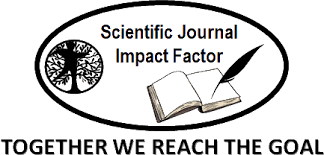THE “Green†TERM AND ACCOUNTING EDUCATION
DOI:
https://doi.org/10.21776/ub.ijabs.2020.28.2.1Abstract
Abstract
Purpose – This paper aims to uncover the meaning of "green" through the point of view of accounting educators.
Design/methodology/approach – Ecophenomenology is used as a methodology to uncover the meaning of “green†by involving three professors from several universities in Indonesia who focus on sustainability and green accounting as informants.
Findings – This research shows that accounting educators provide a deeper meaning related to green, which in addition to considering the triple bottom line (3P) concept also includes values/beliefs as spiritual elements in it. "Green" is specifically interpreted as a process of harmony in life.
Practical Implications – Finding of this research contributes to construct green accounting education’s form that not only focuses on the concept of business with 3P aspects but there is a spiritual aspectalization, so that accountants resulting from such education have a holistic view of their environment.
Originality/value – Terminology in the field of green accounting is experiencing rapid development both in terms of meaning and new terms that emerge. Not much research has paid attention to the definition and meaning of the term yet, especially the term "green" itself. Whereas, the term and it’s meaning might impact to the development of green accounting education.
Keywords – Accounting, Ecophenomenology, Education, Sustainability, Terminology
Paper Type – Research Paper
References
André Feil, A., & Schreiber, D. (2017). Sustainability and sustainable development: unraveling overlays and scope of their meanings. Cadernos EBAPE.BR, 14(3), 667–681. https://doi.org/10.1590/1679-395157473
Clarke, V., & Braun, V. (2013). Teaching thematic analysis: Overcoming challenges and developing strategies for effective learning. The Psychologist, 26(2), 120–133.
Dewi, S. (2015). Ekofenomenologi: Mengurai Disekuilibrium Relasi Manusia dengan Alam. Tangerang Selatan: Marjin Kiri.
Faber, P., & Rodriguez, C. I. L. (2012). Terminology and specialized languange. In P. Faber (Ed.), A Cognitive Linguistics view of terminology and specialized language (hal. 9–32). Berlin, Germany: Walter de Gruyter GmbH & Co.
Glavi, P., & Lukman, R. (2018). Review of sustainability terms and their definitions. Journal of Cle, 15(February), 1875–1885. https://doi.org/10.1016/j.jclepro.2006.12.006
Gray, R. (2019). Sustainability Accounting and Education: Conflicts and Possibilities. In K. Amaeshi, J. N. Munthuri, & C. Ogbechie (Ed.), Incorporating Sustainability in Management Education: An Interdisciplinary Approach (hal. 33–54). Switzerland: Palgrave Macmillan.
Hernádi, B. H. (2012). Green Accounting for Corporate Sustainability. Club of Economics in Miskolc, 8(2), 23–30.
Hinton, J., & Maclurcan, D. (2017). A not-for-profit world beyond capitalism and economic growth ?, 17(1), 147–166.
Howieson, B. (2003). Accounting practice in the new millennium: Is accounting education ready to meet the challenge? British Accounting Review (Vol. 35). https://doi.org/10.1016/S0890-8389(03)00004-0
Jones, G., & Abraham, A. (2008). Preparing accountants for today’s global business environment: The role of Emotional Intelligence in accounting education. In 11th Annual International Conference of the American Society of Business and Behavioral Sciences (hal. 25–27). Honolulu, Hawaii.
Krempl, S. (2014). Is spirituality the essence of sustainability. In J. Lunn & S. Bizjak (Ed.), The truth is out there (hal. 169–181). Perth, Western Australia: Black Swan Press.
Makarenko, I., & Plastun, A. (2017). The role of accounting in sustainable development. Accounting and Financial Control, 1(2), 4–12. https://doi.org/10.21511/afc.01(2).2017.01
McHugh, J. (2007, Desember). Accountants “Have Key Role in Sustainabilityâ€â€™. Public Finance.
Mcphail, K. (2001). The dialectic of accounting education: From role identity to ego identity. Critical Perspectives on Accounting, 12(4), 471–499. https://doi.org/10.1006/cpac.2000.0444
Nandan, K., & Lodhia, K. (2004). Current Environmental Accounting Problematic: A Shift from Anthropocentrism to Ecocentrism. Accountancy Business and the Public Interest, 3(1), 1–31.
Downloads
Published
How to Cite
Issue
Section
License
The copyright of the received article shall be assigned to the journal as the publisher of the journal. The intended copyright includes the right to publish the article in various forms (including reprints). The journal maintains the publishing rights to the published articles.












